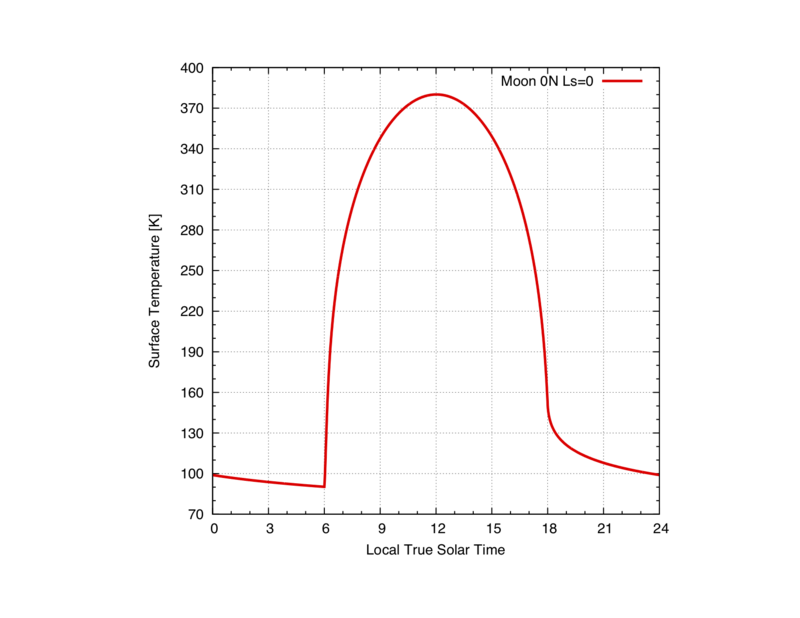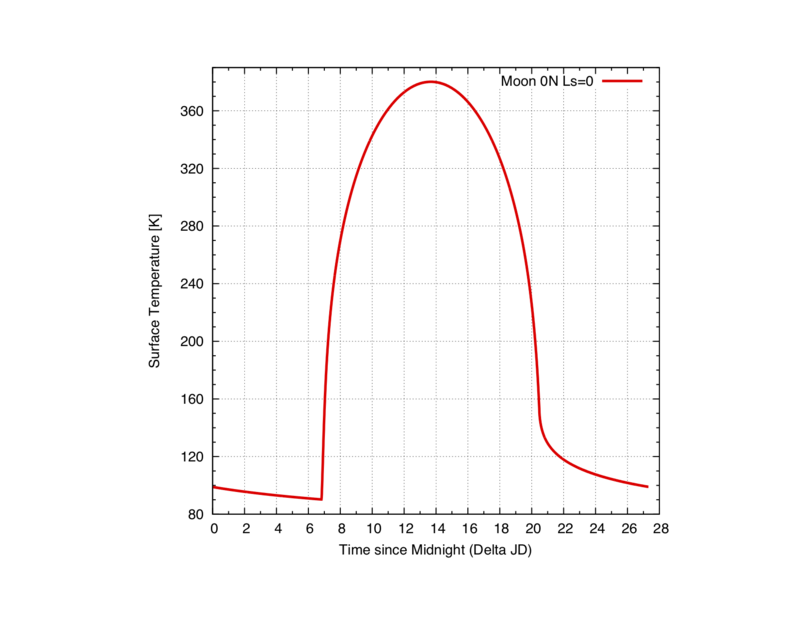KRC for The Moon
| Line 12: | Line 12: | ||
out = krc(lat=0,INERTIA=45.,body="Moon",ALBEDO=.12,LKofT="F") | out = krc(lat=0,INERTIA=45.,body="Moon",ALBEDO=.12,LKofT="F") | ||
| − | |||
plot(out.tsurf[,1,1],xaxis=out.time) | plot(out.tsurf[,1,1],xaxis=out.time) | ||
Revision as of 10:12, 10 April 2020
Set body = "Moon" to calculate temperatures on the Moon:
out = krc(lat=0,INERTIA=45.,body="Moon",ALBEDO=.12,LKofT="F",ls=0.)
Note: KRC for the Moon has not been formally validated.
By default, the temperature dependence of the thermal conductivity uses a Moon-like trend (k_style = "Moon").
For bodies where the duration of a day is significantly longer than the duration of an Earth day like the Moon, the local true solar time can be displayed both as a fraction of 24 (out.time):
out = krc(lat=0,INERTIA=45.,body="Moon",ALBEDO=.12,LKofT="F") plot(out.tsurf[,1,1],xaxis=out.time)
...or as a delta Julian Date since the local midnight (out.deltaJD):
plot(out.tsurf[,1,1],xaxis=out.deltaJD[,1,1])
Seasons can be defined as Ls (ls), Julian Date (JD), and Gregorian Date (GD):
OUT = krc(body="Moon",lat=25.,ls=90.)
For a specific Gregorian Date, GD (currently ranging from 1990-Jan-01 to 2040-Jan-01), the format is ????-Mmm-DD, with Mmm:Jan, Feb, Mar, Apr, May, Jun, Jul, Aug, Sep, Oct, Nov, Dec;
OUT = krc(body="Moon",lat=12.,GD="2010-Jan-05")
or a specific Julian Date JD:
OUT = krc(body="Moon",lat=12.,JD=2455201)
Note: the possibility to specify the date with GD is only currently available for Mars, the Moon, Bennu, and Europa.

